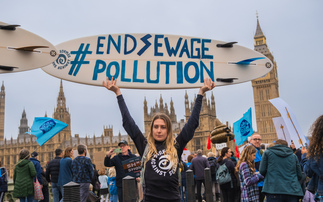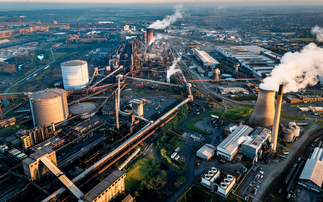The Heathrow ruling proves the Paris Agreement has teeth - five years on, the investment signals lit on that night in Paris have become obvious to all
At the same time as campaigners were gathered on the footsteps of the Court of Appeal waiting to hear whether the government's approval for Heathrow expansion, just over a mile away at the City of London's Guildhall Mark Carney was sketching out a vision of how to remake the entire global financial system to build a net zero economy.
Within minutes of Justice Lindblom ruling that the government had failed to consider the Paris Agreement in its National Policy Statement making the approval for the third runway illegal, Carney and new COP26 President Alok Sharma had unveiled a Private Finance Agenda for the Glasgow Summit that aims "to ensure every professional financial decision takes climate change into account". Turns out Chris Grayling could have done with it last year.
These dual developments came on the same morning as Drax announced it was to bring to an end 50 years of coal generation at its giant Yorkshire power plant next year, National Express said it had bought its last ever diesel bus as it goes all-in on delivering a zero emission fleet, and the telco industry launched a new push to get its members on board with the net zero transition. And yes, all of this came in the same week as BP quit trade bodies over their climate stance, Rio Tinto and Cemex unveiled net zero strategies, and it was revealed that European corporates are investing €124bn and counting in driving the net zero transition. It may have taken five years, but the investment and policy signals lit by the Paris Agreement are now being noticed everywhere.
Inevitably, the Heathrow ruling has ignited a veritable tidal wave of bad takes. It demonstrates neither judicial over-reach, nor that no runway can ever be built anywhere. But it does unequivocally prove that when the government wrote its National Policy Statement and effectively green lit Heathrow expansion it should have publicly considered its compatibility with the Paris Agreement. Had then Transport Secretary Chris Grayling received better legal advice or displayed better political judgement we would be in a very different place.
As such, Heathrow is still confident that its commitment to net zero, the wider aviation industry's same goal, and the promise of greener aviation technology means it can address the court's concerns. But it can't rely on the government's support following a studiedly neutral response from Number 10. The terms of the debate have now shifted. The question is not whether or not Heathrow should be built, but whether airport expansion anywhere can be shown to be in alignment with net zero goals? That is very much a live debate. Boris Johnson can no doubt see a route to avoiding a high profile date with a bulldozer.
The next big legal question is likely to be how credible net zero strategies have to be to clear the Paris Agreement hurdle. Will promises of as yet untested technologies and academic decarbonisation pathways be sufficient, or will judges demand more real world evidence that emissions reductions are being delivered? Either way clean tech R&D funding and nature based solutions are likely to be two of the big winners from the Heathrow ruling. In the meantime, carbon intensive projects are likely to see their risk profiles and cost of capital increase.
The 15 year saga Heathrow expansion saga will rumble on, but something fundamental has changed. The court ruling, Carney's green finance plans, and all the other net zero commitments unveiled in recent months all point in the same direction. Any business or government that wants to build anything, be it infrastructure, an operating model, a market, a license to operate, or a public majority needs a genuinely credible and legally watertight net zero strategy. Savvy businesses already know this. Dinosaur media commentators are yet to catch up.
Not entirely coincidentally today we launched the next phase of the Net Zero Festival, unveiling a host of allies, advisors, and commercial partners who have kindly agreed to help shape and support the event. It will be the world's first festival celebrating and exploring the complexities and opportunities that will arise from the net zero transition. It will bring together senior business leaders, policymakers, and civil society to properly debate this critical, era-defining transition. As today's developments have shown, such a debate has never been more important.
A version of this article originally appeared in the BusinessGreen Overnight Briefing email, which is available to all BusinessGreen subscribers.










